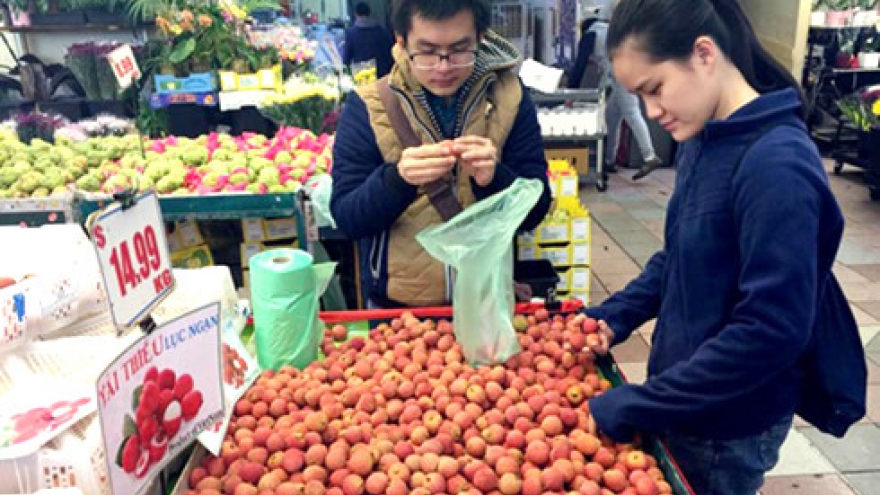Businesses eager to learn trading partners’ information for integration
VOV.VN - Last year, Vietnam signed a number of trade deals which have gradually taken effect and offered opportunities for Vietnamese enterprises to enter foreign markets.
In recent years, Vietnam’s exports have quickly increased in terms of quantity, and diversity of types while the market has expanded.
But many firms are also facing risks attributable to either lack of market information or awareness of regulations, technical barriers, and tariffs.
Pham Hoang Lam, President and CEO of An Giang Province-based Hung Lam rice export, told participants at the 2016 Trade Counselor Conference his company’s story of losing 2,000 tons of rice worth US$1 million in Ghana’s market.
Lam said when exporting to the African market, Vietnamese businesses must study local partners very carefully but added that the exports will be much smoother if from the very beginning Vietnamese exporters receive the necessary assistance from trade counselors abroad.
“The Ministry of Industry and Trade has recently strengthened support for enterprises to look for and develop export markets and study business partners," he noted.
 |
"In the past we only shipped products if our investigation, with the support of commercial affairs agencies showed that trading partners were reliable. In the future we hope trade counselors will accompany us more resolutely in expanding Africa’s potential market,” Lam added.
Tran Thanh Duc, Deputy Chairman of Tien Giang People’s Committee, the second biggest province in export revenue in the Mekong River Delta region, said, “Currently Vietnam has a number of trade counselors in each country. I think the number of counselors should be based on the market. For instance, 10 trade counselors in the US is too few.”
In reality, many Vietnamese enterprises only have general information about exports abroad including tariff cuts, removal of non-tariff barriers and subsidies, and most-favored nation (MFN) status. But they haven’t paid due attention to the specific regulations of host countries.
Nguyen Trung Dung, Trade Counselor and head of Vietnam’s trade office in Japan, said trade counselors should exert more effort to become a significant information channel to support the integration of enterprises.
“Trade counselors will be more active in doing research, negotiating and trade promotion,” Dung affirmed.
But several Vietnamese enterprises are still too dependent on the information provided by trade counselors, according to Dao Tran Nhan, Minister Counselor for Trade in the US.
He shared, “We always try to clarify all queries of enterprises. But enterprises themselves should look for information and materials on the Internet. Whatever they don’t understand or can’t find, at that time they can ask the trade office. We hope you could understand we have loads of works so sometimes we can’t feedback immediately.”
Foreign trade markets are open but each has typical characteristics requiring Vietnamese firms to understand them carefully to minimize risks.

